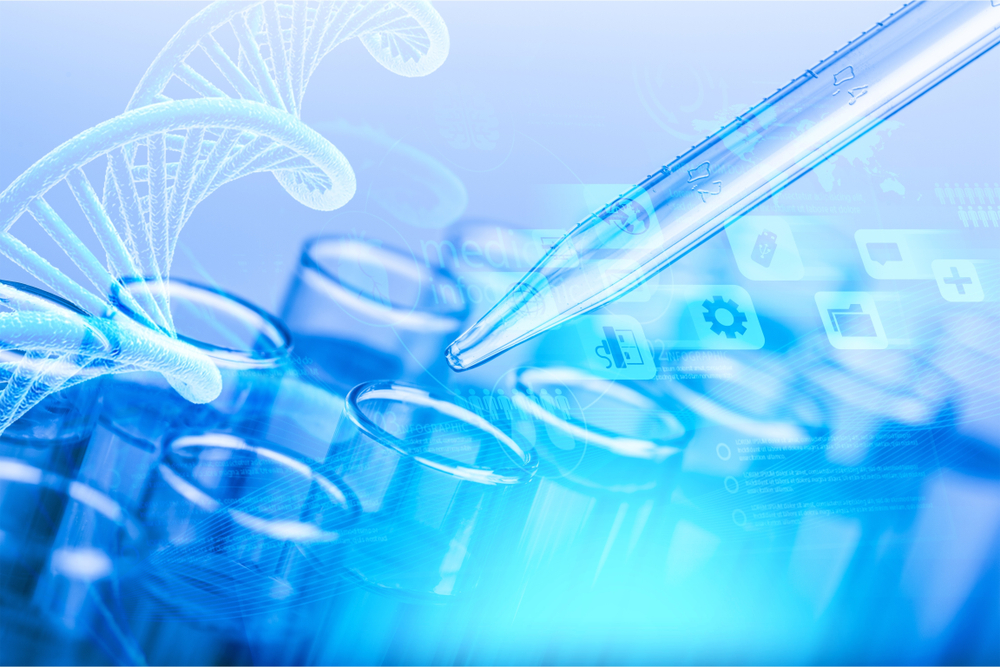Abeona Acquires Rights to Develop Gene Therapies Using NAV AAV9 Gene Delivery System
Written by |

Abeona Therapeutics has acquired the global rights to REGENXBIO’s proprietary NAV AAV9 delivery system to develop gene therapies for Sanfilippo syndrome type A (MPS IIIA) and type B (MPS IIIB). It also will be used for infantile (CLN1) and juvenile (CLN3) Batten disease.
Both Sanfilippo syndrome and Batten disease are caused by faulty genes, and the subsequent impairment of cellular metabolism when toxic cellular waste accumulates.
REGENXBIO’s NAV technology platform uses inactive adenovirus particles as a safe method to deliver genes known to be involved in human diseases.
This new generation of the AAV delivery system was engineered to have a broad application across multiple diseases with a reduced reaction in the host’s immune system. This delivery system also is expected to provide longer-lasting therapeutic effects in a smaller dose compared to currently available gene-delivery methods.
“This license agreement further validates the potential of NAV AAV9 for the treatment of systemic and CNS manifestations of lysosomal storage diseases, as well as the strength of our intellectual property portfolio,” Kenneth T. Mills, president and CEO of REGENXBIO, said in a press release.
“We are pleased to initiate our partnership with Abeona as they continue to advance multiple programs using NAV AAV9 through and towards clinical trials in indications with significant unmet medical need,” he added.
Abeona is developing AB0-201 (AAV-CLN3) and AB0-202 (AAV-CLN1) gene therapies for the treatment of juvenile and infantile Batten disease, respectively. These therapies were engineered to restore the levels of functional CLN3 and CLN1 genes, and amend the underlying metabolic defects associated with those conditions.
Preclinical studies have shown that ABO-201 can reduce nerve inflammation and improve movement in mice with juvenile Batten disease.
Based on these positive results ABO-201 has been designated an orphan drug by the U.S. Food and Drug Administration (FDA) and European Medicines Agency (EMA) as a potential gene therapy for juvenile Batten disease.
Data collected from mice with the infantile form of Batten disease revealed that a single dose of ABO-202 at early stages of the disease could significantly increase survival, improve behavior, and reduce motor deficits.
ABO-202 has received orphan drug status by the EMA for the treatment of infantile Batten disease, and orphan drug and rare pediatric disease designation by the FDA.
“This agreement is an important milestone that underpins the therapeutic potential we see in our Sanfilippo syndrome and Batten disease programs featuring the NAV AAV9 vector, which have the potential to transform the lives of patients,” said Carsten Thiel, PhD, CEO of Abeona.
“Data from our clinical and preclinical programs and the success of the NAV AAV9 vector observed in other indications strongly positions the platform as a leading technology for investigational gene therapies for the systemic and CNS manifestations of lysosomal storage diseases,” he added.
The company is currently conducting Phase 1/2 clinical trials in Europe to evaluate the safety and effectiveness of ABO-102 (2015-003904-21) and ABO-101 (2014-001411-39) as gene therapies targeting Sanfilippo syndrome types A and type B.





